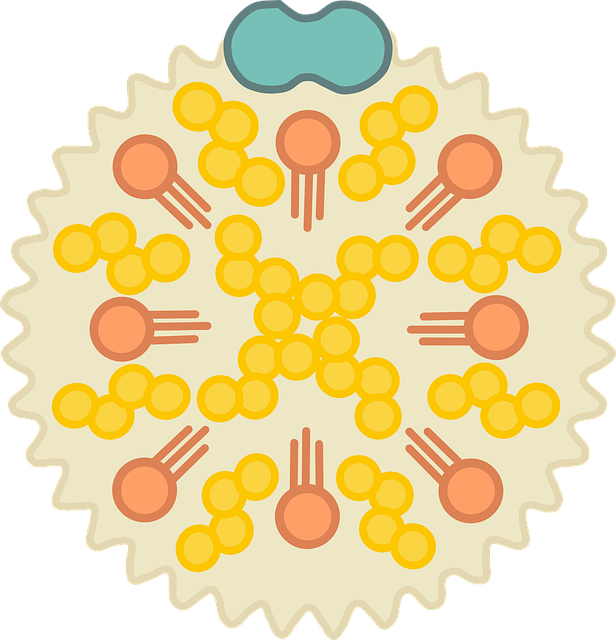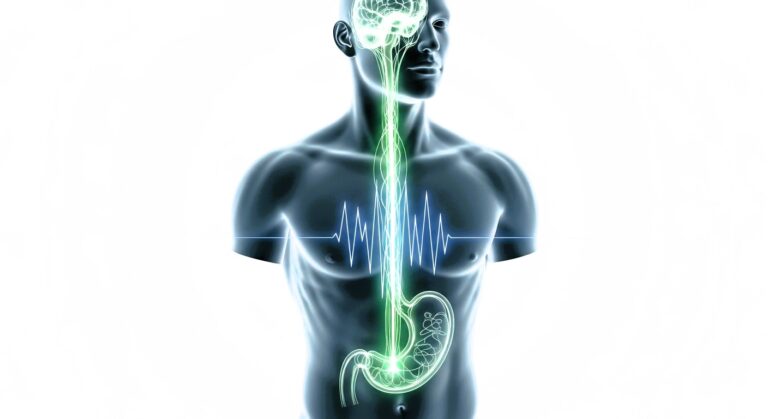Uncovering the Mystery of Cholesterol 2025: The Good, the Bad and the Truth

Cholesterol is a word that often evokes fear and concern, but few of us truly understand what it is, why we need it and how to manage it effectively. In this article, we’ll dig into the world of cholesterol, separating fact from fiction and exploring the latest research on this vital aspect of our health.
What is cholesterol?
Cholesterol is a waxy, fat-like substance that’s found in all the cells in your body. Your body needs some cholesterol to make hormones, vitamin D, and substances that help you digest foods. Your body makes all the cholesterol it needs. Cholesterol is also found in foods from animal sources, such as egg yolks, meat, and cheese.
If you have too much cholesterol in your blood, it can combine with other substances in the blood to form plaque. Plaque sticks to the walls of your arteries. This buildup of plaque is known as atherosclerosis. It can lead to coronary artery disease, a condition in which your coronary arteries become narrow or even blocked.
Cholesterol is a type of fat found in the bloodstream. The liver produces it and plays a crucial role in various bodily functions, such as:
- Building and maintaining cell membranes: Cholesterol helps maintain the structure and fluidity of cell membranes.
- Producing hormones: Cholesterol is necessary for producing hormones like estrogen, testosterone and cortisol.
- Supporting digestion: Bile, produced from cholesterol, aids in fat digestion and absorption.
Types of Cholesterol
There are two primary types of cholesterol:
Heart Cardiovascular
- Low-Density Lipoprotein (LDL): Often referred to as “bad” cholesterol, high levels can lead to plaque buildup in arteries, increasing cardiovascular disease risk.

- High-Density Lipoprotein (HDL): Known as “good” cholesterol, HDL helps remove excess cholesterol from the bloodstream, reducing cardiovascular risk.
Factors Affecting Cholesterol Levels
Several factors influence cholesterol levels:
- Diet: Consuming saturated and trans fats, found in processed and fried foods, can increase LDL.

- Weight: Excess weight, particularly around the waistline, can raise LDL.
- Exercise: Regular physical activity boosts HDL.
- Genetics: Family history plays a role in cholesterol levels.
- Age: Cholesterol levels tend to rise with age.
Managing Cholesterol
To maintain healthy cholesterol levels:
- Eat a balanced diet: Focus on whole grains, fruits, vegetables and lean proteins.
- Exercise regularly: Aim for at least 150 minutes of moderate-intensity exercise per week.
- Maintain a healthy weight: Reduce waistline fat through diet and exercise.
- Limit saturated fats: Restrict intake of processed and fried foods.

- Consider supplements: Certain supplements like plant sterols and omega-3 fatty acids may help.
The Latest Research
Recent studies highlight:
- Personalized approach: Genetic factors may influence response to dietary changes.
- Cholesterol’s role in brain health: Research suggests cholesterol may impact cognitive function and dementia risk.
- New treatment options: Novel medications targeting specific cholesterol pathways are emerging.
Cholesterol is not inherently “good” or “bad.” Understanding its role and managing levels through lifestyle choices and, if necessary, medical treatment can significantly impact overall health. Consult a healthcare professional to determine the best approach for your unique situation.
Key Takeaways:
- Cholesterol is essential for bodily functions but excessive levels can increase cardiovascular risk.
- Diet, exercise, weight and genetics influence cholesterol levels.
- A balanced lifestyle and informed decisions are key to maintaining healthy cholesterol levels.
By embracing a comprehensive approach to cholesterol management, we can foster healthier hearts and minds for generations to come.
Cholesterol New Perspective
The US has shifted its stance on cholesterol. Previously, dietary cholesterol was considered a primary contributor to heart disease, leading to recommendations limiting daily intake to 300 milligrams. However, recent research suggests that dietary cholesterol has a minimal impact on blood cholesterol levels for most people ¹.
This change in perspective is largely due to the accumulation of data over the years, broadening our understanding of dietary cholesterol’s role in a healthy diet. Experts now emphasize the importance of overall eating patterns rather than focusing solely on dietary cholesterol ¹.
The American Heart Association (AHA) updated its guidelines to reflect this new understanding. Instead of recommending a specific daily limit, the AHA suggests keeping dietary cholesterol consumption “as low as possible” without compromising nutritional adequacy ¹.
Key Factors Influencing Cholesterol Levels
- Diet: Consuming saturated and Tran’s fats, found in processed and fried foods, significantly impacts cholesterol levels.

- Weight: Excess weight, particularly around the waistline, raises LDL cholesterol.
- Exercise: Regular physical activity boosts HDL (good) cholesterol.
- Genetics: Family history plays a role in cholesterol levels.
- Age: Cholesterol levels tend to rise with age ¹.
Managing Cholesterol
To maintain healthy cholesterol levels, focus on:
- Balanced Diet: Emphasize whole grains, fruits, vegetables and lean proteins.

- Regular Exercise: Aim for at least 150 minutes of moderate-intensity exercise per week.
- Healthy Weight: Reduce waistline fat through diet and exercise.
- Limited Saturated Fats: Restrict intake of processed and fried foods.

Consult a healthcare professional for personalized guidance on managing cholesterol ¹ ² ³.
Several critical findings have contributed to the shift in thinking about dietary cholesterol:
Research Findings
- Dietary Cholesterol Has Minimal Impact: Studies show that dietary cholesterol has a limited effect on blood cholesterol levels for most people.
- Saturated Fat vs. Dietary Cholesterol: Research indicates saturated fats, not dietary cholesterol, significantly raise Low-Density Lipoprotein (LDL) or “bad” cholesterol.
- HDL (Good) Cholesterol: Higher dietary cholesterol intake can increase HDL, potentially offsetting LDL increases.
- Individual Variability: Genetic differences significantly influence how dietary cholesterol affects blood cholesterol levels.
- No Direct Link to Heart Disease: Epidemiological studies fail to establish a direct link between dietary cholesterol and heart disease risk.
Key Studies
- 2015 Dietary Guidelines Advisory Committee (DGAC) Report: Removed dietary cholesterol as a nutrient of concern.
- 2013 American Heart Association/American College of Cardiology (AHA/ACC) Guidelines: Shifted focus from dietary cholesterol to overall dietary patterns.
- The Framingham Heart Study: Showed no correlation between dietary cholesterol and heart disease.
- The Nurses’ Health Study: Found no significant association between egg consumption (a cholesterol-rich food) and heart disease.
Mechanistic Insights
- Cholesterol Homeostasis: The body regulates cholesterol levels, compensating for dietary changes.
- Bile Production: Dietary cholesterol stimulates bile production, facilitating fat digestion and reducing net cholesterol absorption.
- Genetic Factors: Apolipoprotein E (APOE) and other genetic variants influence cholesterol metabolism.
Shift in Recommendations
- American Heart Association (AHA): Emphasizes overall dietary quality rather than specific cholesterol limits.
- American College of Cardiology (ACC): Focuses on lifestyle modifications.
- Dietary Guidelines for Americans 2020: Removed daily cholesterol limits.
These findings collectively underscore the complexity of cholesterol metabolism, highlighting the need for personalized approaches to nutrition and heart health.
For individuals dependent on cholesterol medications for an extended period, the following recommendations are crucial:
Lifestyle Modifications
- Dietary Changes: Focus on whole, plant-based foods, whole grains, fruits, vegetables and lean proteins.
- Regular Exercise: Aim for at least 150 minutes of moderate-intensity aerobic exercise, or 75 minutes of vigorous-intensity aerobic exercise, or a combination of both, per week.

- Weight Management: Maintain a healthy weight through diet and exercise.
- Smoking Cessation: Quit smoking to reduce cardiovascular risk.
- Stress Reduction: Engage in stress-reducing activities like meditation or yoga.

Loving-Kindness Meditation:
Medication Management
- Statins: Continue statin therapy as prescribed, monitoring liver function and muscle symptoms.
- Non-Statins: Consider adding ezetimibe, PCSK9 inhibitors or fibrates under medical guidance.
- Medication Adherence: Take medications as prescribed, informing your doctor of any side effects.
- Regular Monitoring: Schedule regular lipid profiles, liver function tests and medical check-ups.
Supplement Considerations
- Plant Sterols and Stanols: 2 grams daily can help lower LDL.
- Omega-3 Fatty Acids: 1-2 grams daily may improve triglycerides and overall heart health.
- Coenzyme Q10 (CoQ10): Supports energy production and may offset statin side effects.
- Psyllium Husk: Soluble fibre can help lower LDL.
Emerging Therapies
- PCSK9 Inhibitors: Effective for those with familial hypercholesterolemia or statin intolerance.
- Bempedoic Acid: A non-statin option for lowering LDL.
- Inclisiran: A siRNA-based therapy targeting PCSK9.
Consult Your Doctor
Before making changes, consult your healthcare provider to:
- Assess cardiovascular risk.
- Adjust medication regimens.
- Create personalized lifestyle plans.
- Monitor progress.
Summary:
Cholesterol Reevaluation
- Dietary cholesterol has minimal impact on blood cholesterol for most people.
- Saturated fats, genetics and lifestyle significantly influence cholesterol levels.
- American Heart Association (AHA) and Dietary Guidelines for Americans 2020 removed daily cholesterol limits.
Recommendations for Cholesterol Medication Users
- Lifestyle modifications: balanced diet, regular exercise, weight management and stress reduction.
- Medication management: continue statin therapy, consider non-statin options and monitor side effects.

- Supplements: plant sterols, omega-3 fatty acids, CoQ10 and psyllium husk.
- Emerging therapies: PCSK9 inhibitors, bempedoic acid and inclisiran.
Key Takeaways
- Cholesterol is essential for bodily functions.
- Dietary cholesterol has a limited impact on heart disease risk.
- A personalized approach is necessary for effective cholesterol management.
- Consult healthcare professionals for tailored guidance.
Resources:
- American Heart Association (AHA): [(link unavailable)]((link unavailable))
- American College of Cardiology (ACC): [(link unavailable)]((link unavailable))
- National Lipid Association (NLA): [(link unavailable)]((link unavailable))
By combining lifestyle modifications, medication management and, if necessary, supplements, individuals dependent on cholesterol medications can optimize their heart health. Always consult a healthcare professional for personalized guidance.
Disclaimer: The contents of this article are intended to raise awareness about common health issues and should not be viewed as sound medical advice for your specific condition. You should always consult with a licensed medical practitioner before following any suggestions outlined in this article or adopting any treatment protocol based on the article’s contents.
Recognizing and Addressing Actionable Negative Moods: A Guide to Mental Wellbeing in 2025

